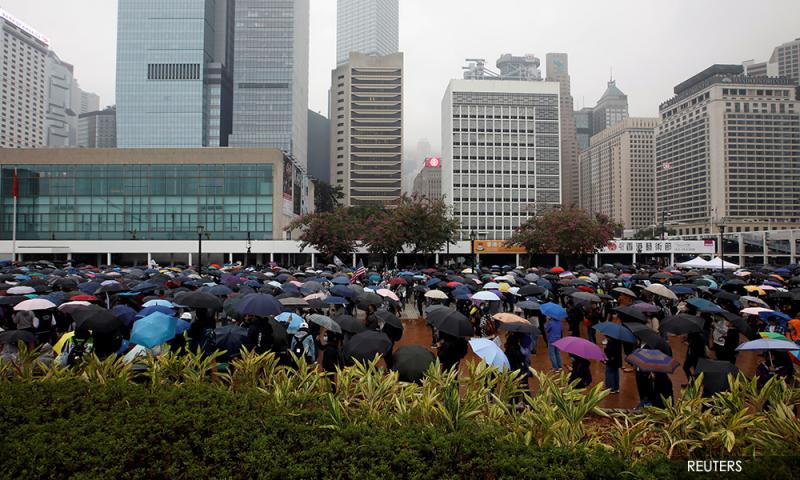Hong Kong to end year with protests, kick off 2020 with big march
Hong Kong will end 2019 with multiple protests planned for New Year’s Eve and New Year’s Day aimed at disrupting festivities and shopping in the Asian financial hub, which has seen a rise in clashes between police and protesters since Christmas.
Events dubbed “Suck the Eve” and “Shop with you” are scheduled for New Year’s Eve tomorrow around the city, including in the party district of Lan Kwai Fong, Hong Kong’s picturesque Victoria Harbour, and popular shopping malls, according to notices circulated on social media.
A New Year’s Day march on Jan 1, has been given police permission and will start from a large park in bustling Causeway Bay and end in the central business district, say its organisers, the Civil Human Rights Front.
The Front previously organised the peaceful million-plus marches in June and held the latest mass march earlier in December, when they said around 800,000 people attended.
“On New Year’s Day, we need to show our solidarity... to resist the government. We hope Hong Kong people will come onto the streets for Hong Kong’s future,” said Jimmy Sham, a leader of the group.
The latest planned protests come after a pick up in clashes since Christmas Eve when riot police fired rounds of tear gas at thousands of protesters, many wearing masks and reindeer antlers, after scuffles in shopping malls and in a prime tourist district.
While the protests - now in their seventh month - have lessened in intensity and size in recent weeks, their frequency has held up, with marches or rallies occurring almost daily in the former British colony.
A rally is planned in the Central business district tonight, where protesters will gather to remember those who have died or have been injured during the protests.
More than 2,000 protesters have been injured since June according to the Hospital Authority. While there is no official count of deaths during the protests, student Chow Tsz-lok died after a high fall during a pro-democracy rally in November. Multiple suicides have been linked to the movement.
Police arrested about a dozen protesters over the weekend and used pepper spray to break up a gathering aimed at disrupting retail business near the border with mainland China. More than 6,000 protesters have been arrested since the protests began.
Yesterday, more than 1,000 people rallied in the rain in Hong Kong’s financial district, chanting slogans for democracy as they huddled under a sea of umbrellas.
Protests have evolved into a broader pro-democracy movement since they erupted in June in response to a now-withdrawn bill that would have allowed extraditions to mainland China, where courts are controlled by the Communist Party.
The bill was seen as the latest example of meddling by Beijing in the freedoms that were promised to the special administrative region when Britain returned it China in 1997.
China denies the claims and says it is committed to the “one country, two systems” formula put in place at that time, and blames foreign countries, including Britain and the United States, for inciting unrest.
The protests have battered Hong Kong’s economy, already reeling from the fallout of the US-China trade war and slowing economic growth in the mainland.
Paul Chan, the city’s financial secretary, said yesterday that a fall in GDP in the fourth quarter was “unavoidable”.
To alleviate the “pain” of the economic downturn, he said the government’s budget in February would focus on boosting the economy, protecting unemployment and easing the “plight” of the people and enterprises.
- Reuters
RM12.50 / month
- Unlimited access to award-winning journalism
- Comment and share your opinions on all our articles
- Gift interesting stories to your friends
- Tax deductable

 Reuters
Reuters